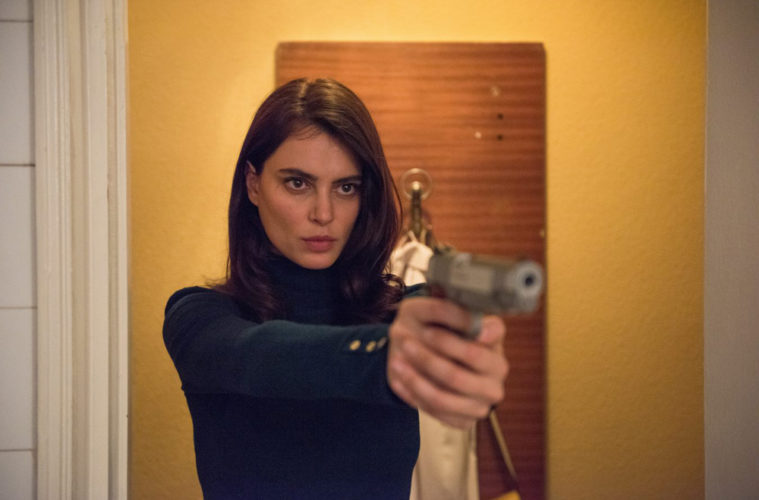Of all the great deadpan, acerbic realists that the Romanian cinema has thrown our way in the last twenty years, Corneliu Porumboiu has always been the best at using humor to compliment the more dense and philosophical aspects of his movies. He has managed to strike that delicate balance time and again, so it’s difficult to know quite how to react to a film as broad as The Whistlers, a sort of sun-holiday noir in which the director’s fellow New Wave veteran Vlad Ivanov (on autopilot here) plays a cop who’s in too deep with the mob and, for some reason, must now learn to “speak” Silbo–a centuries-old whistling language from the island of La Gomera–in order to bust out an old accomplice before he rats Cristi and his pals out to the police.
To its detriment, this has the feel of a film that has been constructed in service of one absurd idea. Now, how exactly whistling to each-other at the top of high-rise buildings could be deemed in any way discreet is beyond me. If it is purely meant to play for laughs then it is scarcely funny the first time around, let alone repeated–as it is here–over the course of an entire runtime. That first instance comes quite early on as Ivanov’s character Cristi arrives on La Gomera to make the deal.
Plot-wise, it is a remarkably tangled beast. Porumboiu divides his script into chapters, each named after a key character. The first is titled Gilda, who is Cristi’s sometimes lover and–yes, like Rita Hayworth–this movie’s femme fatale. Further chapters will focus on everyone from the police commissioner to Cristi’s own mother. In time-honored fashion, Porumboiu’s knotted puzzle unravels as these people gradually meet. As an entertainment it’s more about the journey than the conclusion and there is no denying the fun Porumboiu is having with the tropes of noir cinema. There is a covert meeting in a movie theater and a strangely funny sex scene early on, but I could have done without the inconsequential nods to Hollywood’s golden age, which are, at best, redundant (The Searchers, because there’s whistling?) and, at worst, painstakingly hackneyed (the shower scene from Psycho).
For a relatable tone one might look to the commercial crime capers of someone like Martin McDonagh, which is not a sentence I would have expected to type about a filmmaker who once made a documentary (The Second Game, 2014) that was simply 90 minutes of him commentating on a snow-covered Romanian league football match that his dad had refereed in the ’80s. The Second Game had much to say about Romania at the end of the Ceaușescu era and, indeed, the director has always been great at that sort of outward thinking. In The Treasure, his last narrative feature, the lead character believes his father has buried a fortune under the family home, and thus goes about digging it up while pondering about even darker times in the nation’s history. If similar ideas are being unearthed here, they passed me by entirely.
The Whistlers‘ closest relative in Porumboiu’s back catalog is probably 2009’s Police, Adjective, which used a crime bust as the backdrop for a discussion on justice and conscience. Porumboiu brazenly suggests here that the protagonist of that film might even be the protagonist of this one. At one point a character describes the basic plot of Police, Adjective when talking about an event in Cristi’s past, and the protagonist of Police, Adjective was also named Cristi. Speaking to a level of quality, the similarities stop there.
The Whistlers premiered at Cannes Film Festival and opens on February 28.

